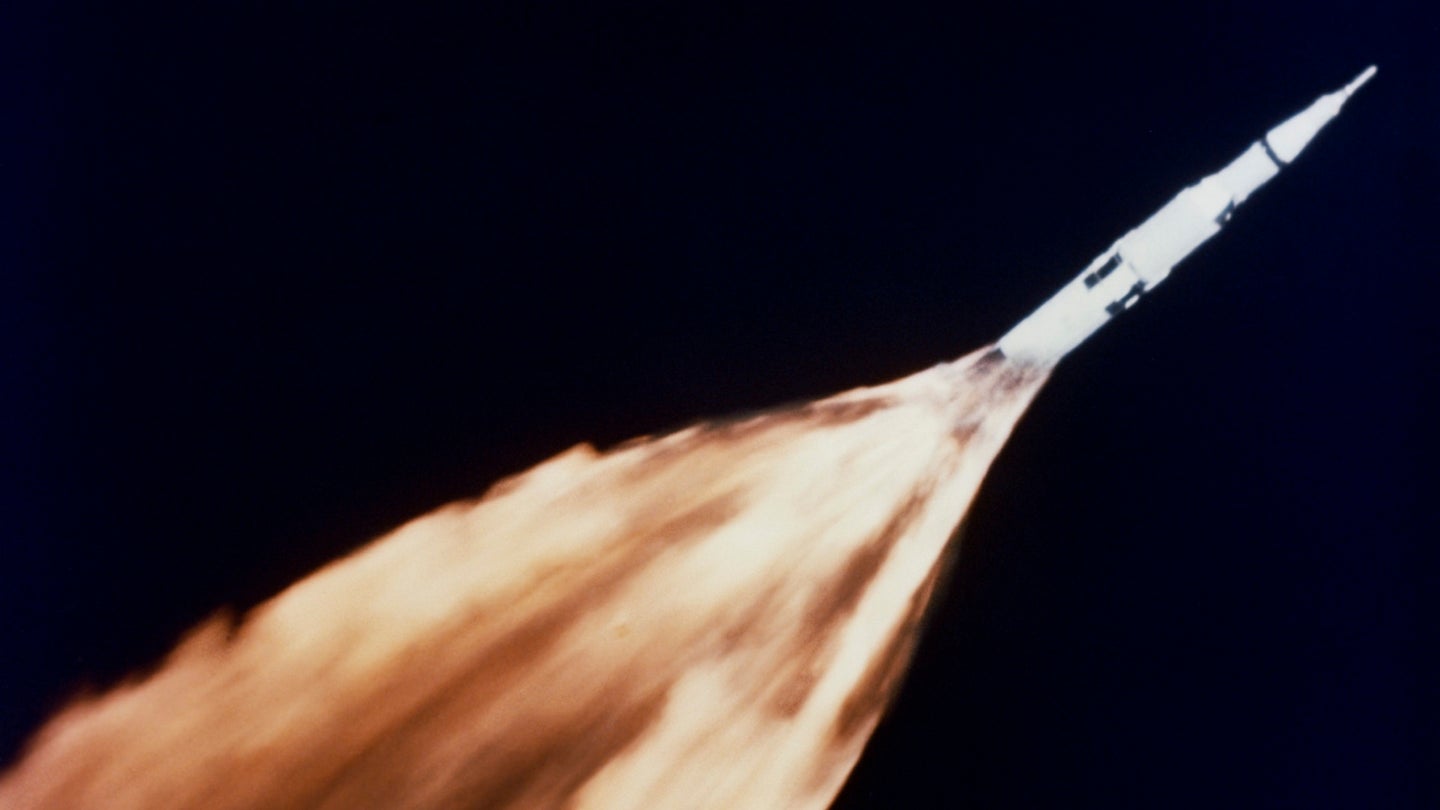Are We Really Going Back to the Moon, As Trump Claims?
President Trump has directed NASA to refocus its efforts on manned exploration of the moon, Mars, and beyond. But can it actually happen?

President Trump signed a directive to NASA on Monday to "lead an innovative space exploration program to send American astronauts back to the moon, and eventually Mars," CNN reports. "The directive I am signing today will refocus America's space program on human exploration and discovery," Trump said. The timing is no coincidence, as Monday marked the 45th anniversary of Apollo 17 landing on the moon—the last time humans set foot there.
But even setting today's volatile political climate aside, how likely is it that this will actually happen? Originally there were Apollo 18, 19, and 20 missions scheduled, but they were canceled in 1970 due to budget cuts and a significant drop of interest in lunar missions less than a year after Apollo 11 landed the first people on the moon. What challenges face a modern-day lunar landing program?
There were numerous incentives to go to the moon in the 1960s that don't exist today. President Kennedy urged the U.S. to send humans to the moon in his famous speech given at Rice University on September 12, 1962. This was just six weeks after cosmonaut Yuri Gagarin became the first man in space. The U.S. was still reeling from the shock of the Soviet Union beating us to space again after Sputnik beat the American Vanguard satellite (later replaced by the successful Explorer 1) to orbit in 1957. This push from Kennedy was just what we needed to reinvigorate our interest in space and establish a goal where we could finally beat the Soviets.
Kennedy was assassinated on November 22, 1963. He became a martyr to the American space program. Not only were we going to the moon to beat the Soviet Union, we were doing it to honor the memory of our fallen President who originally set this goal. Kennedy Space Center remains named after him today.
But let's be honest—the primary motivation for the space program wasn't space exploration. It was to build bigger, more powerful rockets that could deliver bigger, more powerful bombs to our enemies, namely the Soviet Union. When Sputnik orbited the Earth for the first time the payload could have been a nuclear warhead instead of a radio beacon. That was a strong incentive to beef up our own space program, not to explore space but to out-gun the Soviet Union as a deterrent to war.
None of these conditions exist today. People have been visiting space for 55 years. The International Space Station has provided a permanent human presence in low earth orbit. The technology for nuclear missiles is now well established and separate from the space program. The Soviet Union has fallen. We work in space side-by-side with people from many countries, including Russia. American astronauts ride to space on Soyuz capsules launched by our former enemy. And, fortunately, no Presidents have been killed since Kennedy to provide extra incentive to fulfill their wishes.
George H. W. Bush and George W. Bush both gave NASA directives to send humans back to the moon, neither of which came to fruition. Neither the budget nor the incentive was there to repeat what we already accomplished in 1969. Consider that Apollo 17 alone cost $450 million in 1972, equivalent to $2.6 billion today. And that's not counting the development costs of the entire program that made Apollo 17 possible.
This year's total budget for NASA was $19 billion, roughly 0.5 percent of the total federal budget. At Apollo's peak in the 1960s, NASA's allocation was 4.4 percent of the federal budget. Though NASA likely wouldn't need that much of the budget to send people to the moon today, having already learned how to do it (or send Elon Musk's Tesla Roadster to Mars), a significant budget increase would still be necessary to launch people beyond low earth orbit, which is all we've done since 1972. It has been a trend of the Trump administration to shrink government agencies, not grow them, so it remains to be seen whether the government will put its money where Trump's mouth is.
Perhaps the biggest issue facing a return to the moon is simply, why? We've already been there, done that. What would we gain by going back? There is a strong argument that we have more important issues to solve on our own planet before devoting the extensive resources needed to travel elsewhere. Imagine the modern day $2.6 billion cost of Apollo 17 dumped into health care, saving the environment, or rebuilding Puerto Rico.
Personally, I've been a huge fan of space exploration all my life, but even I have a hard time justifying the cost of going to the moon or Mars with all of the issues facing us here on Earth. President Trump has issued the directive to go, but it takes far more than a directive to make this happen. Just ask both Presidents Bush.
